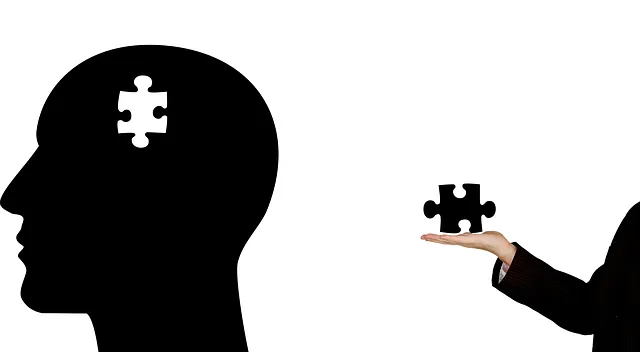In today's fast-paced world, increased awareness of mental health has led to greater access to therapy through organizations like Kaiser. The demand for mental wellness coaching programs is rising, particularly in high-pressure work environments like healthcare. Kaiser offers comprehensive support through its network of services, covering mental health therapy and emphasizing culturally sensitive care. Effective coaching programs tailor strategies to individual needs, combining evidence-based practices with communication techniques to create safe spaces for emotional exploration. Crisis intervention, burnout prevention, and evidence-based techniques are key components, along with cultural competency training for healthcare providers. Evaluating these programs requires a multi-faceted approach, with organizations like Kaiser's Centennial program setting benchmarks aligned with national standards. Continuous improvement through participant feedback ensures tailored strategies for diverse client needs.
In today’s fast-paced world, the demand for accessible mental wellness support is at an all-time high. As organizations like Centennial recognize the impact of employee well-being on overall productivity and satisfaction, there’s a growing need to explore innovative solutions. This article delves into the development of mental wellness coaching programs, focusing on strategies that cater to modern challenges. We examine Kaiser’s coverage and services for mental health therapy, highlighting their role in providing comprehensive support. By understanding these aspects, we can design effective coaching models and measure success through evaluation and continuous improvement.
- Understanding the Growing Need for Mental Wellness Support
- Exploring Kaiser's Coverage and Services for Mental Health Therapy
- Designing Effective Coaching Programs for Modern Challenges
- Key Components of a Comprehensive Mental Wellness Coaching Model
- Measuring Success: Evaluation and Continuous Improvement Strategies
Understanding the Growing Need for Mental Wellness Support

In today’s fast-paced and often stressful world, the need for mental wellness support has never been more acute. The centennial trend of increasing mental health awareness and decreased stigma has led many organizations, including Kaiser, to expand their coverage of mental health therapy. This shift acknowledges that mental wellness is not just an individual concern but a critical aspect of overall health and well-being, especially within the workforce. As such, there’s a growing demand for accessible and comprehensive mental wellness coaching programs.
The burden of mental health issues on professionals, particularly in high-pressure fields like healthcare, is significant. Burnout prevention strategies for healthcare providers have become a pressing topic, emphasizing the need for integrated support systems. Inner strength development and cultural sensitivity in mental healthcare practice are also essential components to ensure that services are tailored to meet diverse needs. By understanding these evolving demands, mental wellness coaching programs can effectively contribute to creating resilient individuals and thriving organizations.
Exploring Kaiser's Coverage and Services for Mental Health Therapy

In today’s digital era, mental wellness coaching programs are gaining significant traction, with many individuals seeking support for their emotional well-being. Kaiser, a renowned healthcare provider, offers a robust network of services tailored to addressing mental health concerns. When it comes to Centennial does Kaiser cover mental health therapy, the answer is affirmative, providing a safety net for those navigating challenging times. Their comprehensive coverage includes access to various therapists and counselors, ensuring individuals can receive the necessary support.
Beyond insurance coverage, Kaiser places emphasis on innovative Empathy Building Strategies and Communication Strategies within their practices. Additionally, they invest in Healthcare Provider Cultural Competency Training, recognizing the importance of diverse perspectives in mental wellness coaching. This holistic approach ensures that patients receive care that is not only effective but also culturally sensitive and tailored to their unique needs.
Designing Effective Coaching Programs for Modern Challenges

In designing effective coaching programs for modern challenges, it’s crucial to recognize that mental wellness is a complex and evolving landscape. Programs must adapt to cater to diverse needs, particularly in today’s fast-paced and often stressful world. The traditional one-size-fits-all approach rarely resonates with the complexities of individual struggles. Therefore, coaches should prioritize tailoring their strategies to foster meaningful connections and address specific issues, such as anxiety, depression, or stress management.
Centennial does Kaiser cover mental health therapy? Indeed, access to quality care is paramount. Coaching programs can leverage evidence-based practices and integrate communication strategies to create safe spaces for clients to explore their thoughts and emotions. By combining Mind Over Matter principles with positive thinking techniques, coaches can empower individuals to take control of their mental wellness journey. This holistic approach ensures that participants not only gain practical tools but also develop resilience and a sense of empowerment.
Key Components of a Comprehensive Mental Wellness Coaching Model

A comprehensive mental wellness coaching model should incorporate several key components to effectively support individuals’ holistic well-being. First and foremost, it must offer Crisis Intervention Guidance, equipping coaches with the skills to help clients navigate through acute mental health crises. This is particularly relevant as organizations like Kaiser (Centennial does Kaiser cover mental health therapy?) recognize the growing need for accessible interventions.
Additionally, a robust program should focus on Burnout Prevention strategies, recognizing that mental wellness coaching isn’t just about treating symptoms but also fostering resilience and self-care practices to mitigate professional exhaustion. Incorporating these aspects alongside evidence-based techniques and tailored support can lead to significant improvements in an individual’s mental health and overall productivity, especially within the demanding healthcare sector where Healthcare Provider Cultural Competency Training plays a crucial role in creating inclusive environments that promote well-being for all.
Measuring Success: Evaluation and Continuous Improvement Strategies

Evaluating the success of mental wellness coaching programs is a multifaceted process. It involves tracking participant progress through quantitative and qualitative measures, such as surveys, interviews, and self-reported improvements in mood, stress levels, and overall well-being. At Kaiser, for instance, Centennial does cover mental health therapy as part of their comprehensive healthcare services, offering a framework for measuring success that aligns with national standards and clinical best practices.
Continuous improvement is integral to effective program development. Coaches can utilize feedback from participants to refine their approaches, incorporate new techniques like Mental Wellness Journaling Exercises, foster inner strength development through tailored guidance, and promote positive thinking strategies. By embracing these evaluation and improvement strategies, mental wellness coaching programs can evolve to better meet the unique needs of their clients.
As we’ve explored, the demand for accessible and effective mental wellness support is at an all-time high. Centennal’s examination of Kaiser’s mental health therapy coverage highlights the importance of comprehensive insurance options in addressing this need. Designing successful coaching programs requires a multifaceted approach, incorporating key components like individualization, evidence-based practices, and client-centered care. By implementing robust evaluation strategies, we can ensure these programs evolve to meet the changing landscape of mental wellness challenges. Ultimately, prioritizing mental health through innovative coaching models is crucial for fostering well-being in our communities.






